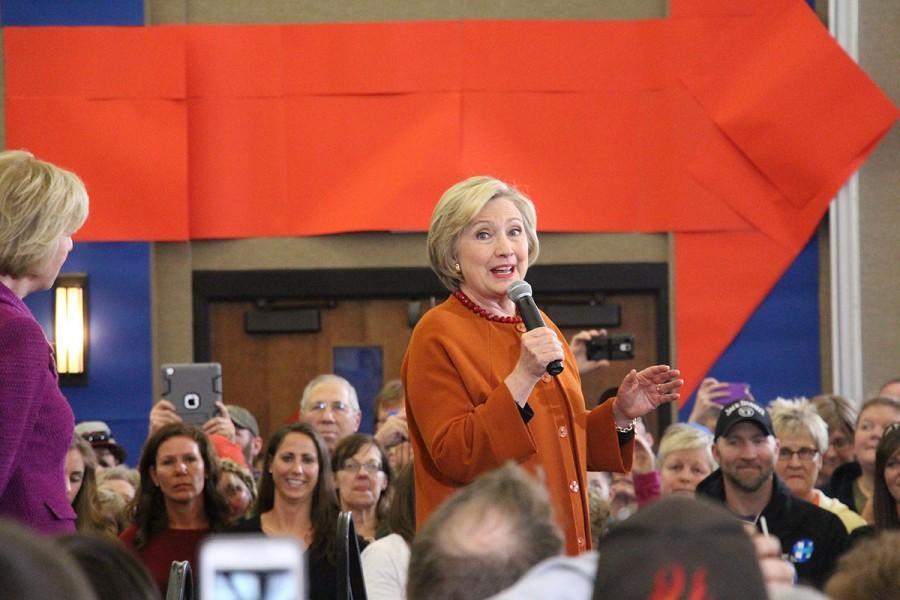Democratic Superdelegates: A fatal flaw
Giving ‘distinguished party leaders’ special voting privileges is an affront to democratic principles
More stories from Gabriel Lagarde
Photo by SUBMITTED
Saturday evening, the booths were closed, the votes were tallied and as the sun set over Wyoming, it was becoming abundantly clear Bernie Sanders had triumphed over Hillary Clinton.
For Sanders, it marked the eighth victory in the last nine state primaries/caucuses. This is no small accomplishment considering his status as both the first Jewish candidate and simultaneously the first non-Christian to win a state contest.
States like New Hampshire and Wisconsin reported some of the highest voter turnouts in their histories and his appeal among millennials meant a demographic maligned for its lack of civic participation proved to be his strongest source of support.
It wasn’t even close in Wyoming. Pollsters estimated the one-time fringe candidate garnered nearly 56 percent of the popular vote against Clinton’s 44 percent, a crushing victory by political standards.
As a reward, Sanders left Wyoming with seven delegates. Clinton tacked 11 more to her total.
Wait, what?
Anyone confused by that tally doesn’t understand what a superdelegate is and how they affect the selection process. In short, a superdelegate is a member of a good ol’ boys club. It’s a part of a democratic system that is decidedly undemocratic. For voters, it’s a sick joke.
While state delegates are obligated to vote in respect to their people’s wishes, superdelegates have no such limitations. They can vote for whoever they please, popular vote be damned, and in Wyoming, there were four superdelegates who all sided with Clinton.
In New Hampshire, while Sanders dominated Clinton’s campaign to the tune of a 22 percent margin of victory, both candidates tied with 15 delegates because six of the eight New Hampshire superdelegates backed Clinton.
New Hampshire and Wyoming weren’t surprising outcomes in the least. The moment Bernie Sanders stepped into the political arena he was digging himself out of a hole. Of the 712 superdelegates in the Democratic Party, 394 of them — over half — pledged themselves to Clinton less than fifteen days into the election process.
Superdelegates were not a mainstay of U.S. politics or even that of the Democratic Party before 1982. After more than a decade of lackluster performances by party-backed candidates, a new method of candidate selection was proposed by the Democratic National Convention, namely giving special influence to distinguished party leaders. Thus, the superdelegate was born.
Conceivably, Sanders could win back the superdelegates Clinton has in her corner. Superdelegate votes aren’t final and they may swing Sanders’ way if they feel their own elections are going to suffer from public backlash, but that is a precarious argument in light of the vague definition of what a “distinguished party leader” is.
It’s a self-perpetuating system, it’s a club; superdelegates include state governors and members of the federal legislature — people who gained their positions as a large result of the establishment’s help — and then there are longtime party stalwarts such as Vice President Joe Biden and former President Bill Clinton who are counted among them.
One can only assume Mr. Clinton is going to vote for his wife and the mainstream Democratic party — including the elected DNC state officials — is likely to back their favored daughter, but it gets worse because superdelegates aren’t limited to elected officials.
Superdelegates include paid politicians and political cronies. For example, superdelegate Jeff Berman is a former Keystone pipeline lobbyist and a consultant on the Clinton campaign. Bill Shaheen was a former co-chair on Clinton’s 2008 campaign and Jill Alper and Minyon Moore are fundraisers and close advisors to Clinton. Is it hard to guess who they are going to vote for?
What it comes down to is that the vast majority of superdelegates are intrinsically tied together and Clinton is part of their fraternity, while Sanders isn’t. Whoever the party deems is the best candidate for the people has a massive upper hand.
As a result, the popular vote means little. The general election is a shame because, while voters have a choice, they’re choosing from the same politically incestuous pool of candidates as they always have.
Why is this? Because apparently millions of voters don’t know what’s best for them, but a select couple thousand do. It doesn’t reflect the will of the people, it reflects the will of an engendered elite and that isn’t democracy, it’s oligarchy.
Ultimately, whether or not Hillary Clinton is a better candidate than Bernie Sanders or vice versa isn’t the issue. The process itself is crippled.
In a true democratic society one has to accept that, for better or worse, the populist vote reigns supreme and as history has proven again and again, stripping power from the majority and placing it in the hands of a few is a recipe for disaster.

